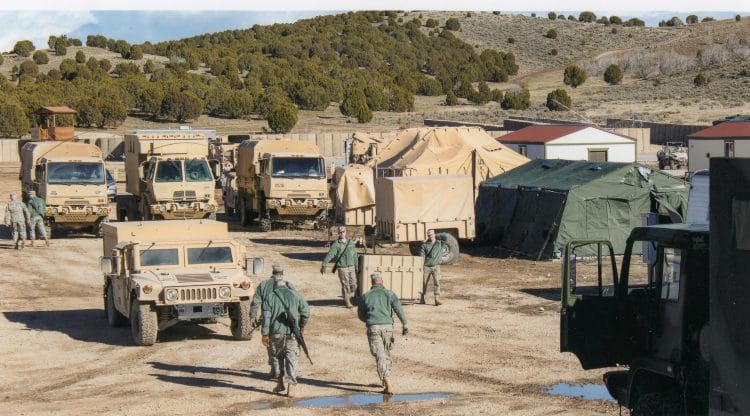“Our military mission in Afghanistan is coming to a close. However, we will continue to maintain the capability sufficient to prevent terror attacks in the homeland emanating from the country. The Afgan security forces are right now defending their people and they will continue to do that” said Pentagon Press Secretary John Kirby during a recent press meeting on Afghanistan.
On 7th October 2001, while the collapsed Twin Towers were still smoking, the U.S military apparatus went on a hunt of Al-Qaeda camps in Afghanistan, which back then represented safe heaven for the Bin Laden’s terrorist group of Al-Qaeda.
Twenty years later, Washington is withdrawing the troops from the country. Two decades in which the world has changed, and so the United States.
The international conference
“The US has proposed a plan and a future international conference in Istanbul. All Afghan sides as well as regional players and international powers and organisations have been invited to attend and discuss ways to resolve the conflict in Afghanistan peacefully. However, it will be a challenge to bring various Afghan sides on the same page as they have shown little flexibility so far. Each side wants peace on its terms” says Dr Dawood Azami, senior journalist and editor in the BBC World Service in London, contacted by Osservatorio Mashrek.
In the last two years, regional and international powers agreed on the idea that the war in Afghanistan can’t reach a military solution. The United States has then decided to move an end to the “U.S longest military campaign” which has cost already $778bn.
“The withdrawal of all foreign troops from Afghanistan, which has been the key demand of the Taliban, and the internal, regional and international census for peace in Afghanistan, has created an environment which offers at least some hope that peace talks could lead to compromise. Working with regional players is important to avoid deeper and wider chaos in Afghanistan. Foreign powers, especially regional state actors, have a lot of leverage with various Afghan sides. The past decades have shown that foreign states’ cooperation influence and pressure can make a big difference in matters of war and peace in Afghanistan” Mr Azami added.
“We didn’t go to stabilised Afghanistan but to wipe out al-Qaeda“
This comes while questions on the capability of the national government to take over the security in the country and confronting the Taliban politically arises. The mullahs have proven a formidable enemy for their resilience and their grasps on the population in the rural area. Plus, an enemy with no willingness to share the power.
“Washington is concerned about not letting the Taliban taking over the Afghan National Army. However, the government in Kabul- and the U.S counterpart- are aware that once the foreign troops leave the country there will be chaos. What will happen is a huge question mark” says Barbara Schiavulli, Director of Radio Bullets and veteran journalist who has extensively covered the country.
“A problematic issue is represented by the population under the control of the central government, who will be terrified of a return of the Taliban to the power. This is particularly true for women and the civil society, which doesn’t want to lose what they have achieved so far.“
“Washington went to Afghanistan to dismantle the infrastructure of Al-Qaeda, which posed a formidable threat to the international stability and the security of the United States. They achieved their goal and now, as it started to be clear under the Obama administration, they wish to leave the country because there are no reasons to stay there” underlined Ms Schiavulli.
The Taliban control over 55% of Afghanistan and many players -internally and externally- are working already on supporting their allies. A scenario in which the nation will be divided under different- and antagonists- areas of influence.
Leaving the country: at what cost?
While western countries are packing and are ready to go back home, many experts are questioning what could be the military-strategic future scenario. In military terms, the presence of the United States is the only reason that avoided the Taliban wiped out the official government.
“The NATO declared that it wants to withdraw. However, the United States need to leave a device on the ground (composed most likely by detachments of Special Forces) ready to intervene where there is a need. What would be the role of these troops, given that their presence needs intelligence, strategic and tactical support? Doubts have already been raised by the military establishment, which calls on the risk of sending soldiers without being able to perform the tasks they are called for” stressed Carlo Biffani, a former soldier and now a security expert which provide risk assessment with his company Security Consulting Group.
“In physics, the concept of emptiness does not exist and so for geopolitics. If the foreign forces depart it is unreasonable that the Afghan Army could manage the situation as it is. I believe, as occurred in other similar situations, some aspects of the organization of the country’s defence can be entrusted to private companies.“
“Those company wouldn’t limit just to “second lines” services, such as those relating to the diplomatic protection or defence of strategic assets such as command centres, barracks, public offices and warehouses. Besides, the Private Military Companies (PMT) that have been consolidating their presence in this area, may find space to provide support even in more distinctly combat areas of use. We shouldn’t underestimate a future scenario in which large swath of Afghan civil and military will be targeted by the revenge of those that have been ousted from the control of the country.”
“U.S needs to be able to set up military structures for defence and contrast, such as to ensure that the situation does not precipitate and have to quickly return” Mr Biffani concluded.


